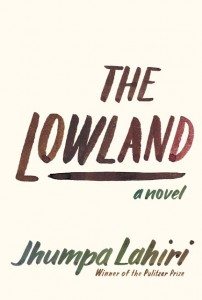397 Likes and 75 shares when published in the Hindu

Jhumpa Lahiri: Transcending Labels, Finding her Place in the World
Without a doubt, she’s a literary rock star.
Jhumpa Lahiri receives the kind of frenzied adulation reserved for celebrities. Her new novel ‘The Lowland’ has created a buzz in the US, with reviews carpeting every media from The New York Times to the most obscure little blog.
She was nominated for both the Man Booker and the National Award – and ‘The Lowland’ had hardly even hit the stores! Her book tour took her to several American cities and social media lit up with Jhumpa talk.
Few writers of Indian origin command this kind of fanfare – except perhaps Salman Rushdie. So is she the next big Indian writer after Rushdie, in terms of international standing?
Ask Homi K. Bhabha this question and he is puzzled. How are Jhumpa Lahiri or even Salman Rushdie ‘Indian’ writers? Bhabha, who is the Anne F. Rothenberg Professor of English and American Literature and Language, and the Director of the Mahindra Humanities Center at Harvard University, observes: ” ‘The Indian writer’ is hardly the descriptor for Salman Rushdie or for Jhumpa Lahiri because that is not their fundamental experience. Every writer has a contextual and critical frame – if anything, Lahiri is among the leading writers in English who have a very cosmopolitan experience.”
Jhumpa Lahiri on Writing (The New Yorker)
“She is a damn good writer.”
Bhabha points out that she is no more an ‘Indian’ writer than Rushdie who moved to London as a schoolboy, studied at Cambridge and has lived most of his life in the west. Lahiri too has lived her life in America with brief visits back to India.
“The reason for her appeal has nothing to do with her being Indian or not Indian. She is a damn good writer. She’s a great observer of character with many of the traits that many of the traditional important writers have,” he says.
” She knows how to weave plot and character with great subtlety, she has a way of understanding the psychological agony that people suffer in certain social conditions. A remarkable observer of human interaction and of how relationships are made, she has also a very finely tuned sense of place in her work. This is why she’s a great writer – not because her parents happen to be Indian!”
Indeed, Jhumpa Lahiri would be the first one to question her title as an ‘Indian’ writer. She has always eschewed labels, of ‘Indian’, ‘Asian’, ‘Multicultural’ – and prefers the stark, simple title of ‘writer’.
We Indians do tend to claim anyone who has even an ounce of Indian blood as ‘Indian’ and revel in their success, no matter where they live!
The Literary Lion

Paul LeClerc in 2007. Photo by Jori Klein
The Culture of Displacement
Deepika Bahri, Associate Professor of English at Emory University in Atlanta, says, “I would say it’s important to locate Lahiri where she is, which is within an Indian-American context. I think that demands some recognition and I think to conflate the two categories – there are continuities and we have to honor them – would be to void some of the geographic and historical specificities that each category deserves to have recognized.”
She adds, ” It wouldn’t be fair either to Lahiri or to Indian writers to conflate the two categories – Indian writers in India would resent that because they should command their own space, and for her it just wouldn’t be adequate to describe the canvas that she is encompassing.”
Indeed, Lahiri’s canvas has very specific cultural details of the lives of Bengali American immigrants and it is these details that add humanity and make the story come alive even for people who are not part of that world, says Sunita Mukhi, Professor in the Department of Asian and Asian American Studies at Stony Brook University in New York: ” These stories can be shared by many others who have a sense of displacement but who find a comfort and home in all these specific details of family life, food and fragrances.”
Mukhi has used Lahiri’s books in her class ‘Desi in the Diaspora’ where although 60 percent of her students are Indian, the rest are Latino, Blacks, Bangladeshi and other minorities. She found that all of them seem to relate to Lahiri’s work, especially to ‘The Namesake’: “They identify with her. She is articulating a lot of their anxieties and their despair of being of desi descent and living in America. Many who read the same book and are not necessarily Bengali, can begin to understand the culture of displacement too.”

Immigrant Stories
While Indians and Indian-Americans are quite thrilled with Lahiri’s meteoric rise, what is remarkable is her crossover appeal, with translations in many languages. Perhaps what connects readers most to her is that in spite of her talent and luck, she is, in various ways, just like them.
She has had early rejections, she has struggled with name, identity, duty and self, family ups and downs and her place in the world. She has been a daughter, a wife, a mother – and the emotions and discoveries of those realities have seeped into her work. She can articulate those gains, losses and longings better than any of us and we are grateful to her for that, for she is a diarist of our human lives.
“This is a novel as affecting in its Chekhovian exploration of fathers and sons, parents and children as it is resonant in its exploration of what is acquired and lost by immigrants and their children in pursuit of the American dream,” wrote The New York Times about ‘The Namesake’.
Yet, her continuous pursuit of these themes has its detractors too. One reader tweeted: “Tired of her one-track immigration angst. She has been writing about not belonging for 15 years now! Getting old now!”
To those who complain that her canvas is too narrow and that she writes always about upper middle class Bengali immigrants in America, Deepika Bahri at Emory, says: ” I find that objectionable – would you lay that charge on Jane Austen? There are thousands of stories to be told about these lives. She shows how dynamic and internally diverse culture can be without succumbing to this great seduction of tradition or the romance of Indian values, while still showing how it might matter.”
What Bahri does have a critique about is the fact that Lahiri is a little disingenuous when she says she’s not accepted as a true American, given her extraordinary success in the marketplace and her great appeal in the American literary world where she operates very much within an American tradition of writing.
With the advent of her new novel ‘The Lowland’ there seems to be fresh debate on her writing style as well as whether she is a better writer of short stories than of the novel. Randy Boyagoda wrote in The Financial Times, ” Booker or not, The Lowland is awash with Lahirical excess.” Porochista Khakpour in the Los Angeles Times writes about her “passionless restraint”: “In Lahiri’s fiction even when there is some blood on some hands, it’s like watercolor blood, nonthreatening and even comely. Sometimes that is magical and other times it feels dishonest.”
Jhumpa Lahiri on Families, Immigration & the World
Jhumpa Lahiri: Dissolving Borders
Jhumpa Lahiri continues to generate animated debate from both the fans, the critics and the bashers but her place is assured in the firmament of writers of Indian origin. She has documented the loss of country and culture, the isolation of immigrants whose place in the home country is forever lost as their loved old world callously moves on without them.
For migrants, it’s a little like crying for the moon which, oblivious of them, shines on. And it is not just Bengalis or Indians who see themselves reflected in her stories; in a global world of migrants where increasingly everyone is from somewhere else, her conflicted characters are universal and touch a chord with every reader.
Bhabha makes an insightful point about both Lahiri and Rushdie: “It is the strength of these writers that having some kind of Indian cultural background largely through their families has opened them up to really appreciating the complexities on a world scale. Whatever it is that’s passed down to them through their families with an Indian aspect has made them voracious for experience on a global scale.”
Indeed, Lahiri actually lives what she writes about – and that perhaps is the secret of her appeal to readers everywhere: she has a hunger for embracing the world and new experiences.
As she told Salon magazine recently: “To a certain degree, all four books are visiting and revisiting a certain migration pattern, in terms of what the characters are doing. That is something I’m less interested in continuing to explore right now. I feel — I want to look elsewhere, and look at things differently.”
Forsaking her parochial Brooklyn neighborhood, much like her parents leaving Calcutta, she is now living in Rome with her husband Alberto Vourvoulias-Bush, a senior editor at Time magazine. Far away from everything familiar, she is starting to write in Italian and exposing her two American-born children Noor and Octavio to a life of dislocation – and discovery.
Jhumpa Lahiri’s fiction crosses borders, and pinpoints the sense of dislocation which is a human condition, common to everyone. We may not have the words ourselves to articulate what we feel but her spare, elegant prose offers us a look in the mirror – and we see ourselves reflected.
The next big ‘Indian’ writer after Rushdie? Maybe not, but certainly a writer, who like Rushdie, attempts to swallow the universe whole and claims a global citizenship.
This article first appeared in The Hindu
Related Articles:
Salman Rushdie, The King of Gup City
Jhumpa Lahiri – Living on Unaccustomed Earth

9 Comments
Hi Lavina,
While the opinion on Ms.Lahiri’s work will be varied, we all will agree on one point – that you have done a fab review and a detailed one. It was a lovely read.
Rubina
James,you are right – each reader interacts with the writer and the written word in their own way. I’ve been most moved by her short stories, especially the lead stories in ‘The Interpreter of Maladies’ and ‘Unaccustomed Earth’.
An insightful post about one of my favorite authors. She’s certainly inspired my own writing.
Like her previous work, The Lowland makes it easy to care about and relate to the characters. How does she do that?! She makes me recall things that are deeply important, but of which I am not normally aware. In my opinion, she can do no wrong; her art is solid.
Sheriff Mohideen via Facebook
Great piece of work!
Thanks Eva Sashankar – will share your comment on Lassi with Lavina. I agree, she is past labels.
Eva Sashankar via Facebook
Great article! I thoroughly enjoyed it and didn’t find a single thought I didn’t subscribe to. Ms. Lahiri is a stalwart – no doubt about that. She cannot be contained in labels – she belongs to the ages.
Rebecca, thanks for your comment – will add it to the comments on Lassi with Lavina so can be shared with readers of the blog. Now that she’s living in Italy and even writing in Italian you may see some different stories from her.
Rebecca Johnson Bista via Facebook
I’m not a great fan of Jhumpa’s. the immigrant experience story is quite a tired one. It may not be her, rather the expectations publishers and public have of what kinds of Indian immigrant stories are acceptable. there’s a certain niche – which I personally long for people to burst out of! I haven’t read her latest, looking forward to her proving me wrong!